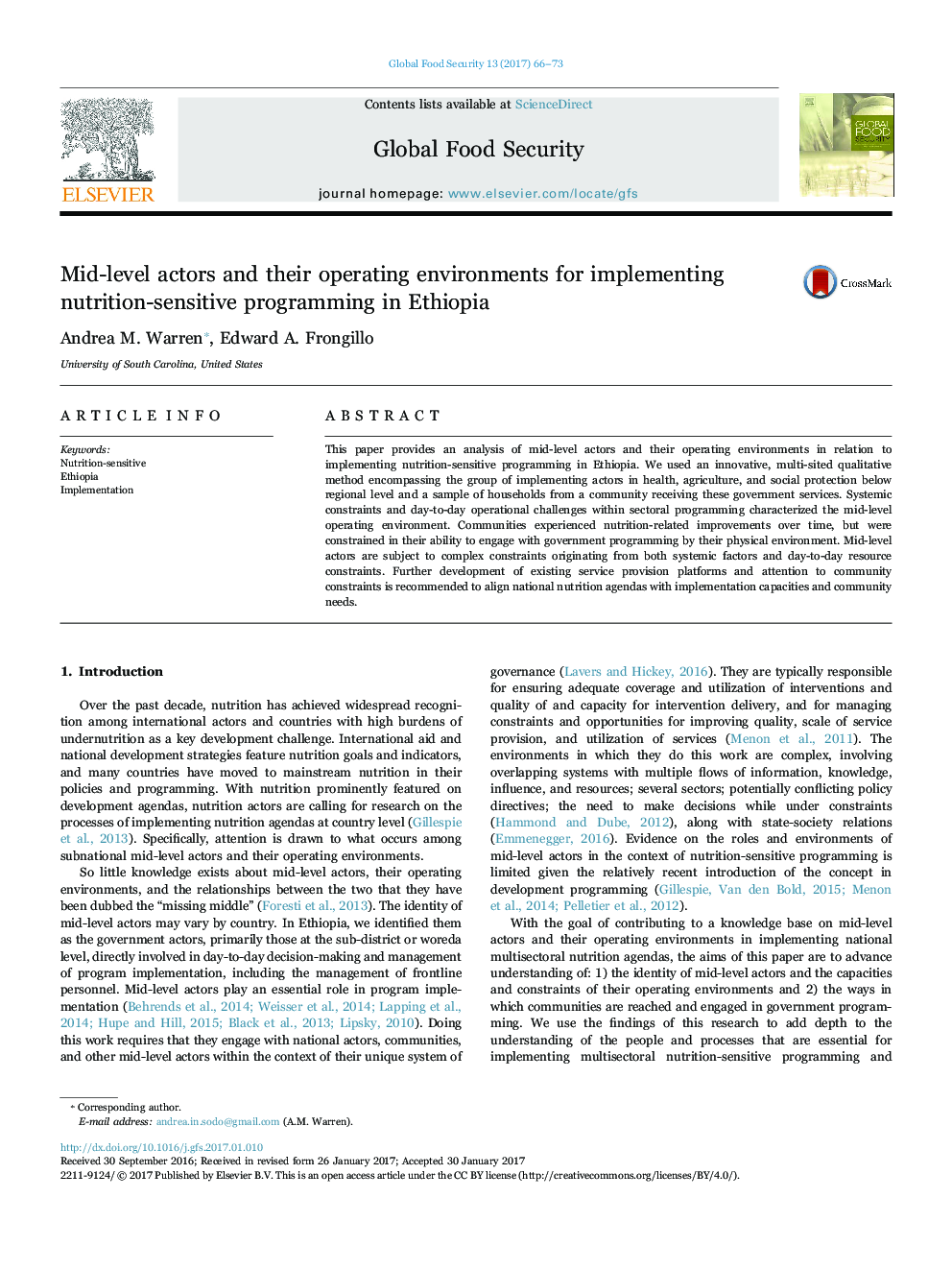| Article ID | Journal | Published Year | Pages | File Type |
|---|---|---|---|---|
| 5114549 | Global Food Security | 2017 | 8 Pages |
â¢Existing service delivery platforms are insufficient to host nutrition-sensitive programs.â¢Mid-level actors are constrained by systemic factors and resource limitations.â¢Implementation will fail without understanding overarching systemic factors.
This paper provides an analysis of mid-level actors and their operating environments in relation to implementing nutrition-sensitive programming in Ethiopia. We used an innovative, multi-sited qualitative method encompassing the group of implementing actors in health, agriculture, and social protection below regional level and a sample of households from a community receiving these government services. Systemic constraints and day-to-day operational challenges within sectoral programming characterized the mid-level operating environment. Communities experienced nutrition-related improvements over time, but were constrained in their ability to engage with government programming by their physical environment. Mid-level actors are subject to complex constraints originating from both systemic factors and day-to-day resource constraints. Further development of existing service provision platforms and attention to community constraints is recommended to align national nutrition agendas with implementation capacities and community needs.
